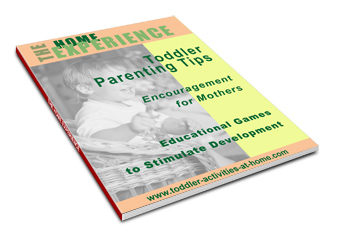Understanding Younger Toddlers And Behavior Issues

This page looks at why understanding younger toddlers' behaviou is so important. If we have a better idea of what is going on in their heads, we can deal more effectively with problems.
A certain amount of seemingly 'naughty' behavior in both older (over 2 years old) and younger (under 2 years old) toddlers is not intentional.
By Understanding Younger Toddlers You Will Learn If Their Behavior Is Intentional Or Not
Experts agree that before the age of 2, all so-called 'bad' behavior is unintentional (this is an average - use your judgement with your own child. Every toddler develops at their own pace).
Seemingly malicious behavior - like hair pulling - actually has no underlying nasty intentions at all.
Why Is This Behaviour Unintentional? Limited Understanding
Steven Shelov and other experts point out that concepts such as right and wrong, rules and warnings are generally beyond the younger toddler, and seemingly ‘naughty’ behavior just lacks thought.
Think of your toddler as a learner driver - except that she is learning how to control herself, not a car. If she scrapes the back bumper or makes a dangerous right turn onto a busy road, ask yourself: is it down to nasty intentions or sheer inexperience?
Ambition vs Ability

From the age of one, children's new found physical independence caused by walking and growing coordination creates a desire to attempt feats beyond their ability. The sight of a toddler trying to climb a tree, furious because he can't manage it, is a familiar sight to many parents.
Gina Ford points out that while a toddler can understand a lot of what is said to him, his ability to clearly express himself lags way behind.
Imagine what it would be like to be forced to use only a few words a day, when there is so much you want to say and do?
All this means your average toddler under 2 is a child with the ambition of Bill Gates, but virtually no skills to match.
Understanding younger toddlers is not a question of mind reading. They are motivated by quite a narrow range of factors.Once you understand why they behave as they do, it becomes easier to deal more calmly and effectively with them.
Sources:
Caring For Your Baby & Young Child, edited by Steven Shelov, Oxford University Press, 1997. Page 276.
The Contented Toddler Years by Gina Ford, Vermilion, 2006. page 18.
To Help Busy Mums and Dads Here Are Some Related Shopping Items
When you purchase from this link, you are actually purchasing from Amazon.com, and you can have peace of mind that your order will be processed by Amazon’s secure order server.












New! Comments
Have your say about what you just read! Leave me a comment in the box below.